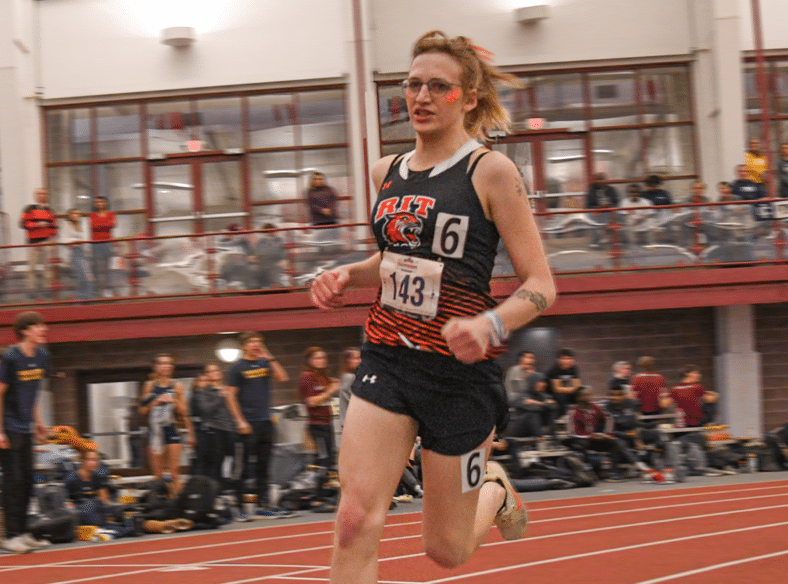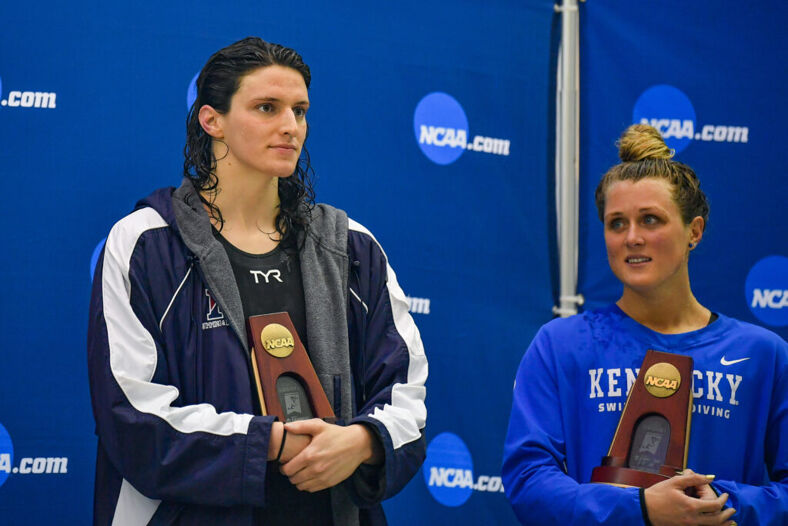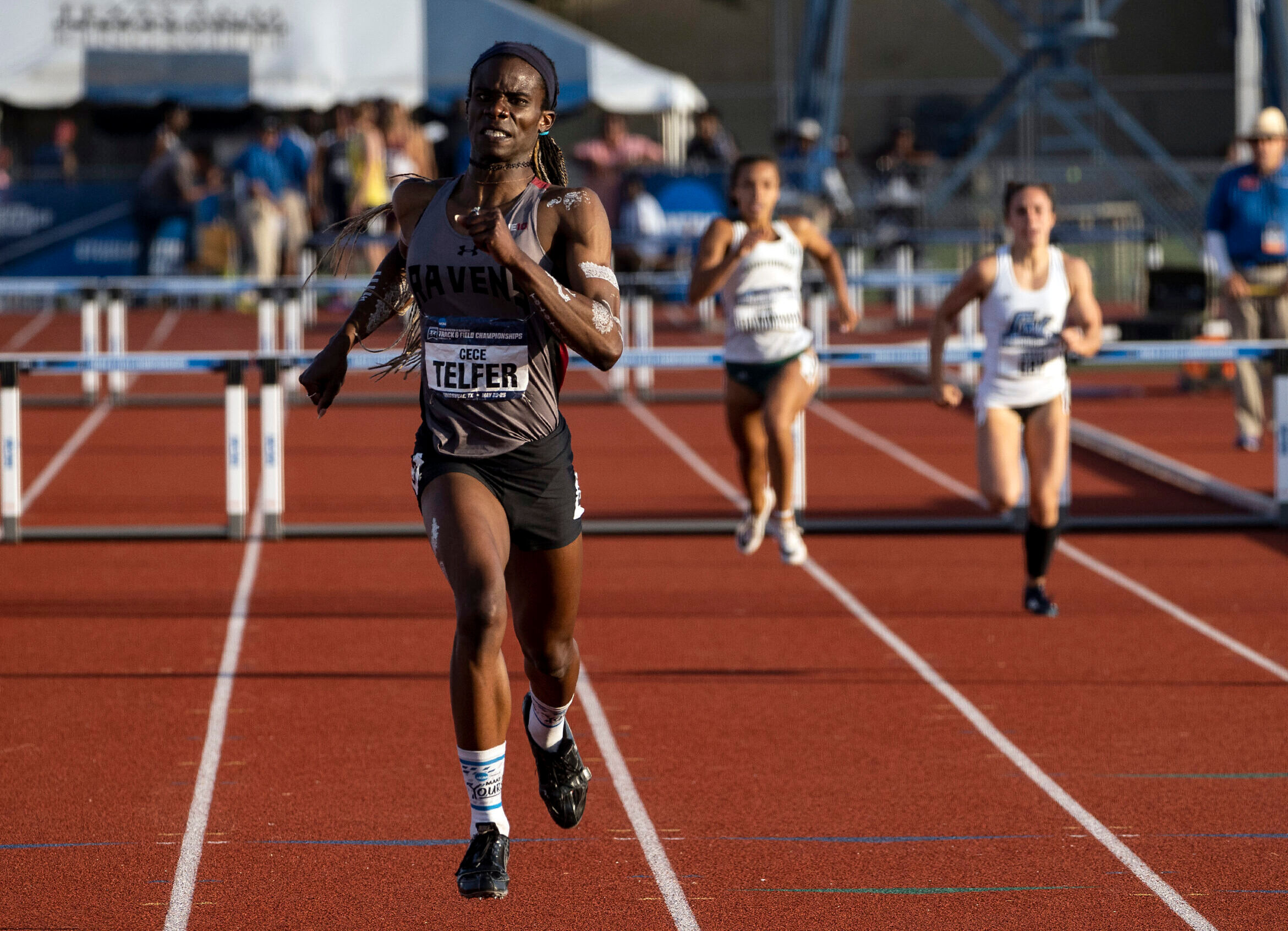Five years ago, CeCé Telfer, a senior track athlete from Franklin Pierce University (N.H.), took the blocks in the finals of the 400 meter hurdles at the NCAA Division II Track and Field Championships. She ended up winning the event and became the first transgender woman student-athlete in NCAA history to win an individual national championship.
Next season, a likely successor will not get the chance.
As fall practices start for most sports in August, the NCAA’s transgender student-athlete policy will cede to the regulations of the world or national governing body of each individual NCAA championship sport. In instances were those bodies do not have an official policy, eligibility will rest on the International Olympic Committee’s guidelines enacted initially in 2015.
Under next year’s regulations, collegiate trans women would banned from female sports in indoor and outdoor track and field, as well as cross country. The world governing body, World Athletics, instituted a total ban on transgender women competing in women’s competition last year.
Get off the sidelines and into the game
Our weekly newsletter is packed with everything from locker room chatter to pressing LGBTQ sports issues.
The NCAA’s aquatic championships — swimming, diving and water polo — would follow World Aquatics policy, which banned transgender women from women’s competition since 2022. Prior to the policy change, University of Pennsylvania swimmer Lia Thomas became the first transgender woman to win an individual title at the NCAA Division I level. Critics contend it was Thomas’ success that triggered the policy at the elite level.

Related


Study of trans athletes concludes blanket sports bans are a mistake
The lead researcher of a landmark IOC-funded study looking at strength, power and aerobic capacity of trans athletes tells Outsports that sports federations should consider its findings carefully.
By Jon Holmes | April 12, 2024
At least one active transgender student-athlete will definitely be affected by these changes. Rochester Institute of Technology sprinter Sadie Schreiner qualified for nationals in indoor track earlier this year and among the fastest in Division III outdoor at 200 and 400 meters.
Next month’s Division III national championship meet in South Carolina may be her last chance to run in college competition. “None of us have been talked to by the NCAA about this ruling that’s being made without trans athletes in the discussion,” she said an interview with the Washington Post earlier this week. “No one has asked for my story.”
Even with an inclusive policy, Schreiner and any transgender women in competition would have meet a serum testosterone requirement for at least one year and show proof such at the start of the competitive season. The athlete would also have to submit further documentation prior to any championship competition. Such regulations would carry over to next year in 15 sports that will still allow transgender women to compete in women’s sports under the NCAA banner.
The NCAA Board of Governors took up the issue in a meeting earlier this week. “The current policy remains under review,” the board said in a written statement. “College sports are the premier stage for women’s sports in America and the NCAA will continue to promote Title IX, make unprecedented investments in women’s sports and ensure fair competition for all student-athletes in all NCAA championships.”
The NCAA has been reticent to speak on the issue in the year, but did take action to delay upcoming regulations. The more stringent regulations were originally scheduled for 2023-20. Given the recent IOC-backed study that shows transgender women may be at demonstrable disadvantages in sports compared to like cisgender women, the NCAA rules makers could be looking at that data with a closer eye.

Among those who support the NCAA keeping all sports inclusive, including hundreds of professional and collegiate athletes who spoke out against total bans this week, a closer look is what they are pushing for.
Maarathoner and former collegiate distance runner Cal Calamia stated on Instagram the importance of exposing the dangers of spreading misinformation about trans athletes. “This underscores how asinine it is to not allow trans women to compete,” Calamia said.
Anti-transgender groups backed by conservative political lobbies are demanding total bans in all sports. Their effort is powered by a lawsuit against the NCAA by 16 former and current college athletes, led by former swimming All-American and anti-trans activist Riley Gaines. The suit demands that all transgender women are banned from NCAA women’s sports and all awards and placing earned by trans women in women’s NCAA sports are erased from the official record.
Such groups are pushing the NCAA in part because of the action of the National Association of Intercollegiate Athletics. The group of smaller and largely religiously affiliated college and universities announced their policy to ban trans women from women’s sports under the umbrella April 9.








































